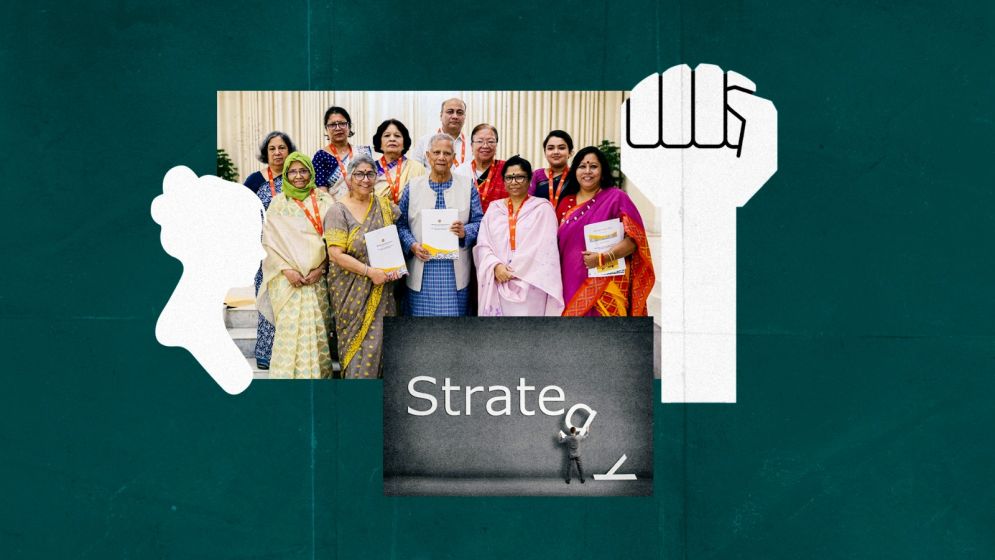Bold words, bad strategy: The Women’s Commission Report faces grim odds

I read the 318 pages of the recent Women’s Reform Commission report–and I wish I could say it was worth the time.
What I found was not a blueprint for reform, but a bloated wish list of proposals, many of which are politically unworkable, ideologically untethered, or just plainly absurd.
This isn’t the first reform commission we’ve seen. In fact, it reads like the tenth iteration of the same theater: ambitious rhetoric, maximalist demands, and a near-certain fate of total political irrelevance.
The likelihood that even a single one of the Commission’s proposals will be implemented is vanishingly small.
Why? Because the Commission overreached. Instead of anchoring itself in practical, actionable reforms that could have improved the lives of women in the real world, the report wandered into a maze of philosophical speculation and political point-scoring.
Recommendations on the death penalty, parliamentary structure, and the state’s religious identity–none of which are within the remit of a gender-focused reform body–do little more than undermine the report’s legitimacy.
These are matters already under the jurisdiction of other commissions. Why dilute focus and credibility by repeating their work?
The language, too, strains credibility. The use of the term "ইহ-জাগতিক"-- an unusual and esoteric word for "secular"-- seems more about branding than clarity. It risks introducing confusion into an already polarizing debate.
If the Commission hoped to spark consensus on women’s issues, inserting contentious redefinitions of statehood is a strange way to start.
There’s also a troubling philosophical undertone. The document implies a vision of law and morality detached from any transcendent or spiritual foundation.
But historically, much of modern law–yes, even secular law– has roots in religious moral codes, particularly the Judeo-Christian tradition, where fear of divine judgment reinforces ethical behavior.
Remove that underpinning entirely, and the question becomes: What restrains human conduct? Without a deeper moral compass, governance becomes harder, not easier.
Consider the property inheritance recommendations. The report both calls for equal inheritance rights across religions and– in the same breath– says the system should be optional.
Which is it? Ambiguity like this doesn’t advance reform; it paralyzes it.
As a father of three, I will ensure my daughters receive equal shares. But that should be my choice. In a Muslim-majority country like Bangladesh, citizens must have the freedom to follow Islamic inheritance laws if they choose.
Reality matters: social norms often place greater expectations–and thus burdens– on sons. Meanwhile, wives traditionally inherit from husbands. A dual system, both religious and civil, respects the complexity of our society.
The Commission should have said so explicitly.

Policy document? Or a manifesto?
This was a chance to propose focused, grounded changes that could command broad support. Instead, we got a manifesto masquerading as a policy document.
The tragedy is that by overloading the agenda with ideological baggage, the Commission has likely doomed the few necessary reforms it did recommend. Women in Bangladesh deserve better than this– they deserve reforms that can actually become law.
The Commission’s detour into structural redesign of Parliament only deepens the confusion. It recommends expanding the legislature to 600 seats– a curious and unexplained contradiction to the 450-seat structure proposed by Ali Riaz’s more grounded reform body.
According to this Commission, exactly half of the 600 seats– 300–should be reserved for women. For comparison, Riaz’s commission recommended 100.
The same 50-50 gender split is recommended for every ward, every corporate board, every governing body–a utopian symmetry enforced not by social progress but by legislative fiat.
The world has never seen such an absolutist model of gender engineering in democratic governance. Why? Because this isn’t equality– it’s a new form of discrimination, one that replaces merit with rigid arithmetic.
Parity by force rarely produces justice. More often, it breeds resentment and undermines competence.
And then, the Commission strays even further from its mandate– proposing that prostitution be recognized as a formal profession.
Let’s pause here.
Even in the most liberal democracies, prostitution remains a legally fraught issue. In the United States, it's largely banned. People still engage in sex work, yes– but under legal risk.
In the United Kingdom, prostitution per se is not illegal, but the associated infrastructure–brothels, pimping, or even cohabiting sex workers–is tightly restricted. Only a small handful of countries– Germany, the Netherlands, New Zealand– have taken steps toward full legalization.
But even among those, treating prostitution as a formal, pensionable state-recognized occupation remains almost unheard of.
What would formal employment status mean? Paid leave? Health insurance? Liability for injury? Unionization? Salary benchmarks? These are serious structural questions– and none are answered in the Commission’s report.

Lofty ideas without proper vision
This is the core problem: not that bold ideas are being floated, but that they are being floated without rigor, feasibility, or responsibility.
Proposals of this magnitude require meticulous thought and societal consensus. Instead, they are tossed in like ideological grenades– more likely to provoke backlash than progress.
The Women's Reform Commission could have laid out a realistic path for empowering women in Bangladesh. Instead, it handed over a document that seems designed to be ignored– or worse, to discredit the very cause it claims to champion.
If the Commission's proposals were to be implemented in earnest, we would be staring down the barrel of a bureaucratic farce–debating leave policies and pension plans for sex workers, or, absurdly, determining who provides physical comfort if a prostitute is in pain while working.
These are not the pressing issues of a developing country. In fact, not a single nation– not even the most liberal democracies– has institutionalized sex work to this degree.
So why was this proposal even made?
The only logical conclusion is this: those behind such demands are not interested in solving existing problems. They are committed to inventing new ones– with abstract, imported concepts masquerading as progress.
Take language, for instance. The report swings wildly between the use of "নারী-পুরুষ" (woman-man) and terms like “gender identity” and “gender equality”-- phrases still subject to fierce global debate.
Yet these terms are introduced here as if they were settled science, ignoring the social and cultural dynamics of Bangladesh entirely. One might have expected a measure of prudence, of contextual sensitivity, from those drafting reforms for this country.
Common sense, it seems, was in short supply.
Worse still is the recommendation that all media be legally prohibited from portraying women “in a bad light.” On its face, that sounds well-meaning.
In practice, it's a censorship trap. Who defines what counts as “bad light”? One government may use it to ban misogyny. The next may use it to ban criticism of the powerful– if that power happens to be held by women.
It's not a shield for women; it’s a loaded weapon that could backfire on both women and media freedom alike.

Will breaking the power of men bring
equality?
The report also proposes setting 18 as the minimum age for marriage and mandating equal division of assets after divorce.
Important topics, no doubt– but handled with such lack of legal and cultural nuance that the reader is left guessing at how these would be enforced or interpreted. A complex debate is reduced to broad declarations with no scaffolding beneath them.
And then there’s the irony of representation. Despite making recommendations that will require broad societal buy-in– especially from men–the Commission was composed entirely of women.
Not a single male voice was included, not even from a moderate cleric or an academic familiar with legal pluralism.
If the aim was to push reforms into law, some pragmatic coalition-building was needed. Instead, the result feels like an echo chamber– one that handed off its 318-page report not to Parliament, but to Yunus, who, one suspects, already regrets being handed the job.
To be clear, not everything in the report was misguided. Many proposals were worthwhile –calls for stronger legal protection for women, enforcement against workplace harassment, equal pay for female athletes, mandated maternity leave, and daycare for working mothers.
Had the Commission focused on these achievable, consensus-building measures, it could have accomplished real change. Instead, those good ideas are now buried under the weight of ideological overreach.
The tone is perhaps best captured by one line printed in bold: “Break the power of men, bring equality.”
It reads less like a call for justice, and more like a declaration of war. Equality built on conflict isn’t equality– it’s polarization in disguise.
The Commission had an opportunity to bring Bangladesh together around a better future for women. Instead, it handed its opponents all the ammunition they’ll need to stall change for years.
—
Shafquat Rabbee is a Texas based geopolitical analyst and columnist

